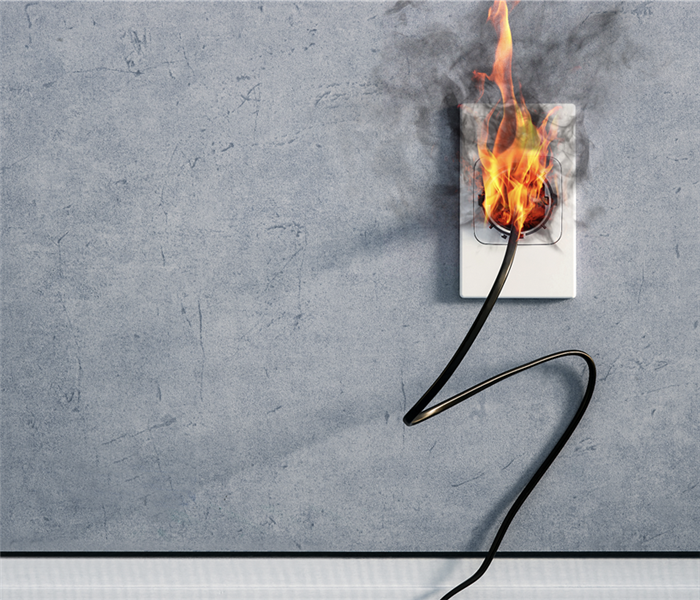Avoiding Common Pitfalls: Mistakes to Steer Clear of When Making a Fire Claim
8/14/2023 (Permalink)
Filing a fire insurance claim can be a complex and overwhelming process, especially in the aftermath of a devastating event. To ensure a smooth and successful claim experience, it's crucial to avoid common pitfalls that could potentially jeopardize your claim. In this article, we will discuss the most common mistakes homeowners should steer clear of when making a fire claim and provide helpful tips to navigate the process effectively.
Delaying the Notification
One of the most significant mistakes homeowners make is delaying the notification of their insurance company. It's crucial to promptly report the fire incident and initiate the claims process. Contact your insurance provider as soon as possible to ensure a timely response and documentation of the damages.
Failing to Review the Insurance Policy
Before making a fire claim, thoroughly review your insurance policy to understand the coverage, limitations, deductibles, and any specific requirements for filing a claim. Being aware of the policy details will help you set realistic expectations and prevent misunderstandings during the claims process.
Neglecting Proper Documentation
Insufficient or incomplete documentation is a common pitfall. Take detailed photographs or videos of the fire damage, including the affected areas, personal belongings, and structural damage. Keep records of any related expenses, receipts, and communication with the insurance company to support your claim.
Discarding Damaged Property Prematurely
Avoid disposing of damaged property or making significant repairs before consulting with your insurance company. They may need to assess the damage firsthand and document the loss. Preserve the damaged property or belongings until the insurance adjuster has an opportunity to evaluate them.
Failing to Mitigate Further Damage
As a responsible homeowner, it's essential to take immediate action to prevent further damage after a fire. Failure to mitigate additional loss (e.g., water damage or vandalism) can result in complications during the claim process. Take necessary steps to secure the property and address immediate repair needs.
Not Seeking Professional Assistance
Navigating the complexities of a fire insurance claim can be overwhelming. Engaging a public adjuster or fire damage restoration professional can provide valuable expertise and support throughout the process. They can help assess the damage, document the loss, and negotiate with the insurance company on your behalf.
Miscommunication with the Insurance Company
Clear and consistent communication with your insurance company is vital. Be honest and accurate when providing information about the incident and the damages. Keep records of all conversations, including dates, times, and the names of the individuals you spoke with.
Settling for an Inadequate Settlement
Avoid accepting an initial settlement offer without carefully evaluating its fairness and adequacy. Review the proposed settlement in light of your policy coverage, the extent of the damages, and any additional expenses you may incur during the recovery process. Consult with professionals or seek legal advice if necessary.
Overlooking Additional Living Expenses
If your home is temporarily uninhabitable due to fire damage, you may be eligible for coverage of additional living expenses. This can include costs for temporary accommodation, meals, and other necessary expenses. Keep track of these expenses and ensure they are included in your claim.
Missing Deadlines
Insurance policies typically have specific deadlines for filing a claim or providing supporting documentation. Missing these deadlines can lead to claim denial or delays. Stay organized, understand the timeline, and adhere to the specified requirements to ensure your claim is processed smoothly.
Making a fire insurance claim can be a challenging process, but by avoiding common pitfalls, you can improve your chances of a successful outcome. Promptly report the incident, thoroughly document the damage, and communicate effectively with your insurance company. Seek professional guidance when needed, review your policy carefully, and be proactive in meeting deadlines. By avoiding these common mistakes, you can navigate the fire claim process with greater confidence and maximize your chances of receiving fair compensation to aid in your recovery.





 24/7 Emergency Service
24/7 Emergency Service
